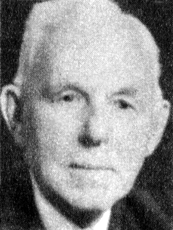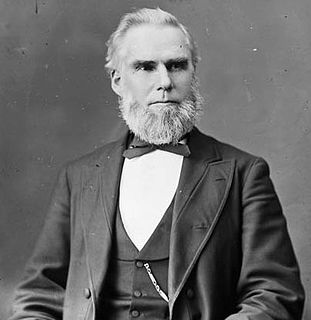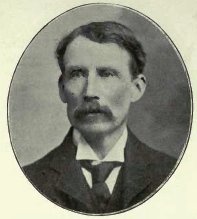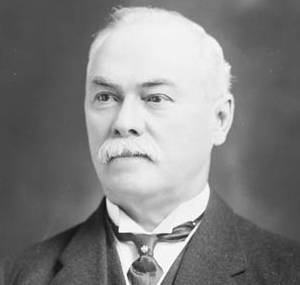| The Hon. Finlay McNaughton Young | |
|---|---|
 | |
| Senator for Killarney, Manitoba | |
| In office 1900–1916 | |
| Appointed by | Wilfrid Laurier |
| Member of the Legislative Assembly of Manitoba for Turtle Mountain | |
| In office 1883–1888 | |
| Preceded by | J. P. Alexander |
| Succeeded by | John Hettle |
| Member of the Legislative Assembly of Manitoba for Killarney | |
| In office 1888–1899 | |
| Succeeded by | George Lawrence |
| Personal details | |
| Born | 2 April 1852 St. Chrysostome, Canada East |
| Died | 15 February 1916 (aged 63) |
| Political party | Liberal |
| Other political affiliations | Manitoba Liberal Party |
Finlay McNaughton Young (2 April 1852 – 15 February 1916) was a Canadian senator.

Canadians are people identified with the country of Canada. This connection may be residential, legal, historical or cultural. For most Canadians, several of these connections exist and are collectively the source of their being Canadian.

The Senate of Canada is the upper house of the Parliament of Canada, along with the House of Commons and the Monarch. The Senate is modelled after the British House of Lords and consists of 105 members appointed by the Governor General on the advice of the Prime Minister. Seats are assigned on a regional basis: four regions—defined as Ontario, Quebec, the Maritime provinces, and the Western provinces—each receive 24 seats, with the remaining portions of the country—Newfoundland and Labrador receiving 6 seats and the three northern territories each assigned the remaining one seat. Senators may serve until they reach the age of 75.
Born in St. Chrysostome, Canada East, the son of Duncan Young, he was educated at St. Chrysostome and Montreal. In 1879, he moved to Manitoba. A farmer, he was first elected to the Legislative Assembly of Manitoba for the electoral division of Turtle Mountain in 1883 and re-elected at all the subsequent elections up to 1899. In 1899, he was defeated. He was Speaker of the Legislative Assembly of Manitoba from 1895 to 1899.

Saint-Chrysostome is a municipality in south-west Quebec, Canada in the regional county municipality of Haut-Saint-Laurent in the Montérégie administrative region. The municipality was created by the amalgamation of Saint-Chrysostome village with the parish of Saint-Jean-Chrysostome on September 29,1999. The population as of the Canada 2011 Census was 2,522.

Canada East was the northeastern portion of the United Province of Canada. Lord Durham's Report investigating the causes of the Upper and Lower Canada Rebellions recommended merging those two colonies. The new colony, known as the Province of Canada was created by the Act of Union 1840 passed by the Parliament of the United Kingdom, having effect in 1841. For administrative purposes, the new Province was subdivided into Canada West and Canada East. The former name of "Lower Canada" came back into official use in 1849, and as of the Canadian Confederation of 1867, it formed the newly created province of Quebec.

Manitoba is a province at the longitudinal centre of Canada. It is often considered one of the three prairie provinces and is Canada's fifth-most populous province with its estimated 1.3 million people. Manitoba covers 649,950 square kilometres (250,900 sq mi) with a widely varied landscape, stretching from the northern oceanic coastline to the southern border with the United States. The province is bordered by the provinces of Ontario to the east and Saskatchewan to the west, the territories of Nunavut to the north, and Northwest Territories to the northwest, and the U.S. states of North Dakota and Minnesota to the south.
A Liberal, he was appointed to the Senate of Canada on 30 January 1900 on the recommendation of Sir Wilfrid Laurier. He represented the Senate division of Killarney, Manitoba, until his death.

The Liberal Party of Canada is the oldest and longest-serving governing political party in Canada. The Liberals form the current government, elected in 2015. The party has dominated federal politics for much of Canada's history, holding power for almost 69 years in the 20th century—more than any other party in a developed country—and as a result, it is sometimes referred to as Canada's "natural governing party".

Sir Henri Charles Wilfrid Laurier was the seventh prime minister of Canada, in office from 11 July 1896 to 6 October 1911.

Killarney is an unincorporated community in southwestern Manitoba, Canada, at the corner of Manitoba Provincial Trunk Highways 3 & 18. The community was formerly an incorporated town before amalgamating with the surrounding Rural Municipality of Turtle Mountain to form the Municipality of Killarney-Turtle Mountain. Killarney is known for the lake situated within the community. Killarney is located in a rural area, dependent primarily on agriculture and agribusiness. It is approximately 20 km (12 mi) from the Canada-US border, 100 km (62 mi) south of Brandon and 250 km (160 mi) southwest of the provincial capital, Winnipeg.










